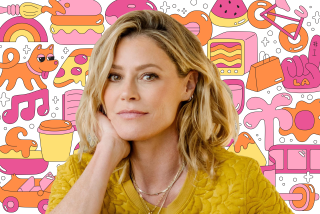Hearts of the City / Exploring attitudes and isues behind the news. : A rotating panel of experts from the worlds of philosophy, psychology and religion offer their perspective on the dilemmas that come with living in Southern California.
- Share via
Today’s question: How do you balance civic responsibility with personal convenience when it comes to answering a summons for jury duty?
Sharon Presley Executive director of Resources for Independent Thinking, a nonpartisan, nonprofit educational organization in Lakewood. *
“Jury duty might be something we would choose to do, but I do not think we have a moral obligation. Contributing to the well-being of our community is important, but true community, like morality, can’t be forced. Morality involves choice. If the state forces us through legal means to serve on a jury, we are denied moral choice. If serving on a jury means sacrificing our family’s well-being or our own, we have the right to say no. We don’t exist for the state; it exists for us. I do not believe that the state has a right to force people to do what they do not choose to do, as long as they are not harming others.”
Rabbi Joel Rembaum Senior rabbi at Temple Beth Am and president of the Southern California Board of Rabbis.
“From a Jewish perspective, responsibilities that relate to carrying out of justice are very important. The Bible makes this very clear. That’s our starting point. Obviously, there are people with other responsibilities--not just being at a job--to the community that go beyond themselves. A person, for the sake of justice, cannot imperil their own financial stability. That would make them a burden on society. The legal system usually recognizes that. The other side of the coin is that there’s an awful lot of wasted time [during jury duty]. People sometimes feel they are exposed to haggling and a waste of time and start to question the wisdom of having made a good-faith gesture on behalf of the system of justice.”
The Rev. Michael A. Mata Director of the Urban Leadership Institute and the Mildred Hutchinson chair in Urban Ministry at Claremont School of Theology.
“Ethically, we must be active participants in public life. The parable of the good Samaritan encourages me to be a good neighbor. Jury duty is part of a social compact with one another to make the system supposedly work. Whether we’ve been born here or immigrated to this country, by virtue of being here we have subscribed to the basic tenets that govern our society. The idea of being tried by your peers calls for a response. Being a person of color--an ethnic person--that voice would not be evident if I dodged jury duty. Our absence would weaken the process because we don’t have a full flavor of what we find in society: the neighborhood and the streets.”
Compiled by LARRY B. STAMMER/Times Religion Writer
More to Read
Sign up for Essential California
The most important California stories and recommendations in your inbox every morning.
You may occasionally receive promotional content from the Los Angeles Times.













